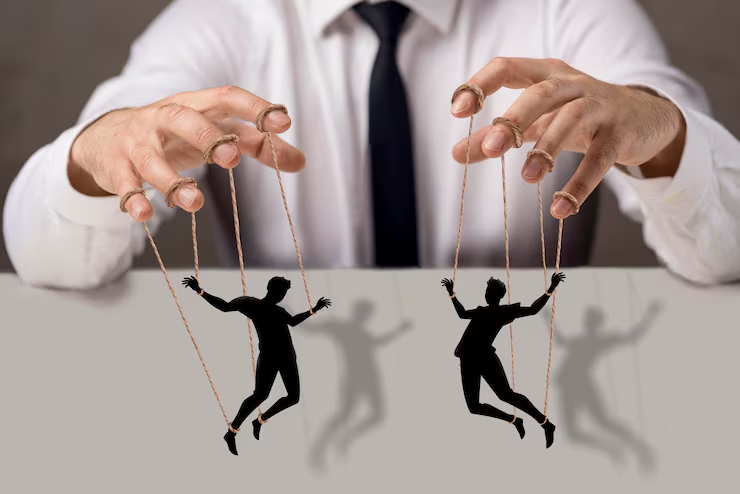Ten toxic self-esteem boosters that are bad for you
Many people struggling with low self-esteem try to boost it through methods that do more harm than good. Their intentions may not be malicious but they are simply not aware of how toxic and determinantal those practices are. The methods listed below may offer short-term relief but often worsen the underlying issues in the long run.
1. Putting others down

An extremely common but harmful strategy is boosting self-esteem by demeaning others. This might involve gossiping, criticizing, or mentally comparing yourself to others to feel superior. The logic behind this is: "If they’re worse, I must be better". This doesn’t solve the core issue which is your own feelings of inadequacy.
A better approach is to focus on your own strengths and achievements, and to appreciate your uniqueness without needing to compare yourself to others. Self-esteem thrives not by pushing others down, but by building yourself up.
2. Thinking you are special

Another misguided way of feeling better is convincing yourself that you are some how special or privileged. Everyone is unique but the belief that you must be extraordinary to be worthy can lead to a deep fear of being average. This kind of thinking often stems from an all-or-nothing mindset: you are either brilliant or nothing. It doesn't have to be this way.
Trying too hard to be different can lead to a life of anxiety and dissatisfaction. It disconnects you from others and pressures you to constantly prove your worth to people who couldn't care less. It is just a big waste of time and energy. The healthier alternative is to accept yourself as a regular, worthwhile human being. You don’t need to stand out in order to have value. Your everyday existence and your efforts are enough. Being average is the normal. If you are not special then you are a normal person.
3. Trying to get everyone to like you

Like Jerry Seinfeld said: "Not everyone likes everybody", in reference to George insisting that Jerry's girlfriend should like him. Many people tie their self-worth to how much others like them. This desire for approval can lead to a situation where you constantly sacrifice your own needs to win the affection of others. Ironically, trying too hard to be liked often has the opposite effect. It can make you seem needy or insincere.
When your self-esteem depends on others' approval, it becomes fragile. You become anxious when you're not liked and even more anxious when you are because now you fear losing it. Instead of seeking approval, aim for respect. Respecting yourself naturally leads others to respect you as well.
4. Placing yourself above criticism

Some people avoid criticism at all costs because they believe it exposes them as failures. This fear leads to a state of perfectionism. You can try to hide your flaws and deny mistakes but deep inside you know the truth and that is "you are perfect". Believing so can you in pointless cycle where you find yourself constantly trying to fix all of your shortcomings. These behaviors may protect your ego temporarily but ultimately lower your self-esteem and waste your time.
In reality, mistakes are part of being human. Accepting this truth can be freeing. When you accept that, you’re less likely to be defensive or self-critical. Instead of fearing criticism, be open to it as a tool for growth. Paradoxically, owning up to your flaws can actually strengthen how others perceive you.
5. Avoiding failure, disapproval, and rejection

Avoidance is a common coping strategy. You might stay away from situations where you fear judgment or failure, believing this keeps your self-esteem safe. However, avoidance doesn't fix the root problem. It simply postpones your discomfort and keeps you stuck. Moreover, the fear of failure will eventually deter you from trying new things or taking up on challenges, some that you might fail but others that will lead to growth and prosperity.
True change comes from facing your fears and changing the beliefs behind them. When you challenge the idea that failure or rejection defines you, you can approach difficult situations with more courage. Practicing new, self-accepting beliefs in real-life situations is the path to authentic self-esteem.
6. Avoiding your emotions

Suppressing emotions like sadness, fear, or anger might feel like a sign of strength but in reality it leads to emotional numbness and damaged relationships. Accepting your feelings is a courageous act. Strong emotions are often valid responses to real challenges. Instead of seeing emotions as weakness, embrace them as part of your humanity. This emotional honesty can improve your mental health and deepen your relationships.
7. Controlling others to feel significant

Some people want to feel important by trying to controll the people around them. This might involve giving unsolicited advice, dominating conversations, or trying to convert others to your way of thinking. Underneath this behavior is a belief that your worth depends on your impact.
Unfortunately, trying to control others can be off-putting and often results in rejection, reinforcing your original feelings of insignificance. Instead, ask yourself how you would behave if you were not trying to prove your value. Focus on mutual respect and collaboration rather than dominance. You will feel more genuine and gain healthier connections with others.
8. Over-defending your self-worth

Constantly feeling the need to defend your self-worth can make you overly sensitive to minor slights. While standing up for yourself is important, becoming aggressive or outraged at every perceived insult can be exhausting for both you and those around you.
True confidence doesn't require constant defense. Choose when it is truly worth speaking up and when it's best to let things slide. Self-respect means knowing your worth regardless of how others treat you.
9. Feeling superior

Another trap is feeling better than others. Believing that you are superior across the board is unrealistic and isolating. Many people who act this way coverer up deep-seated feelings of inferiority.
Superiority creates distance and discourages authentic connections. Dropping the need to be the best allows you to be more authentic. That invites others to connect with the real you.
10. Blaming nature or nurture

Finally, many people preserve their fragile self-esteem by blaming their upbringing, genes, or circumstances. This can offer temporary relief from shame, but it also disempowers you. If everything is someone else's fault, you lose the ability to make changes.
Taking responsibility does not mean blaming yourself. It means recognizing how your current beliefs and behaviors are affecting your life and choosing to do something about it. You can understand your past with compassion, but your future depends on the choices you make today. Letting go of blame and accepting responsibility is an empowering step toward real growth.

























